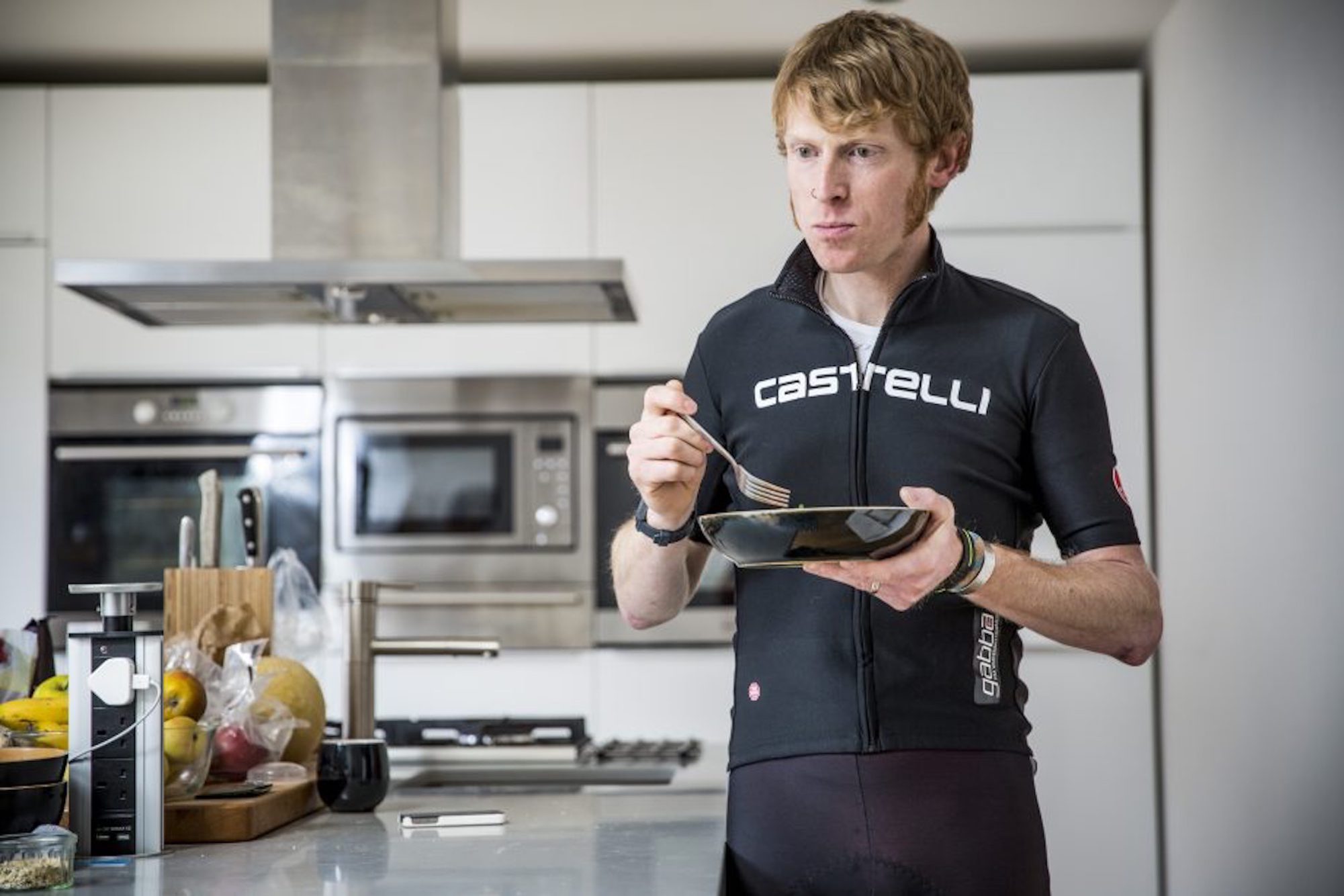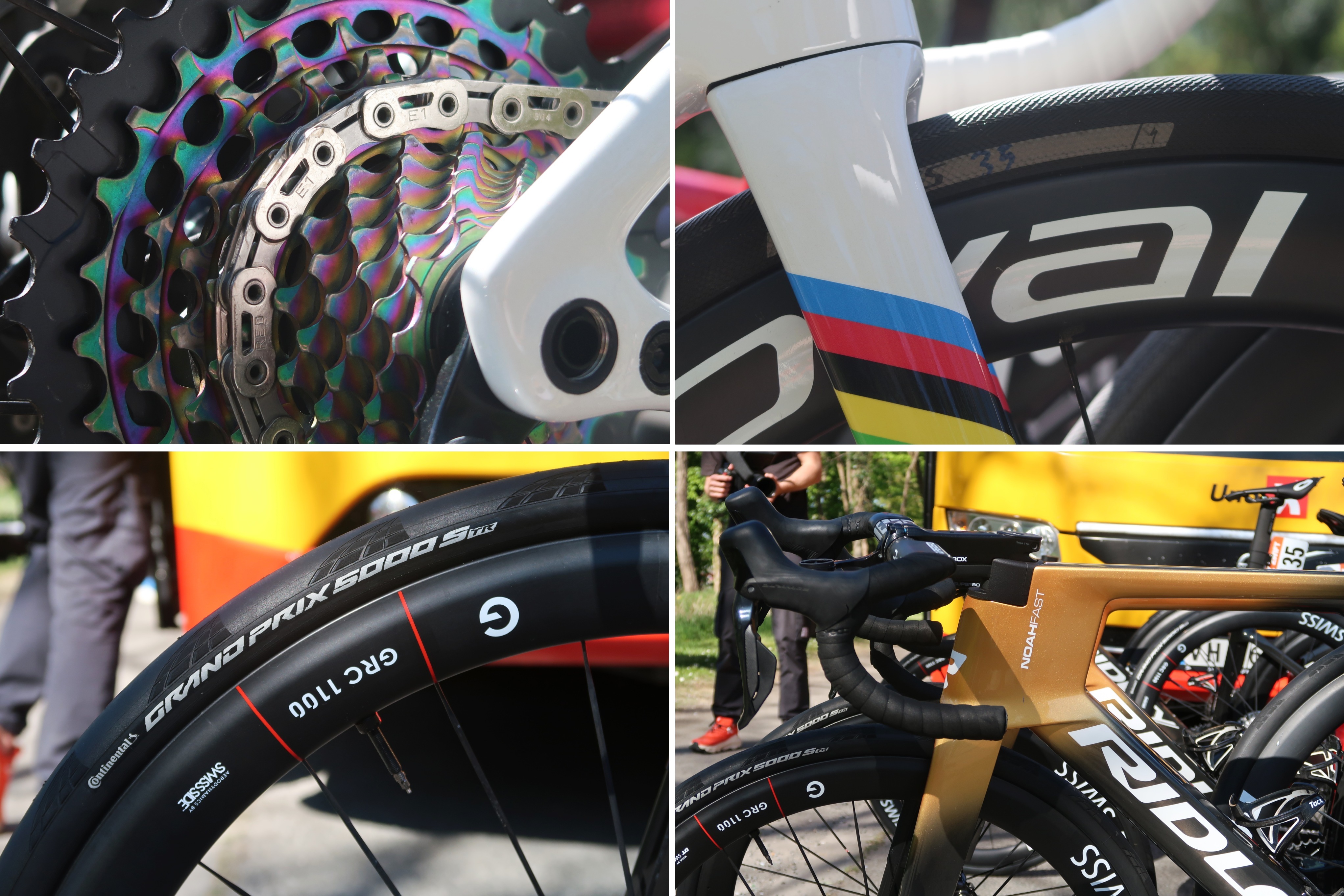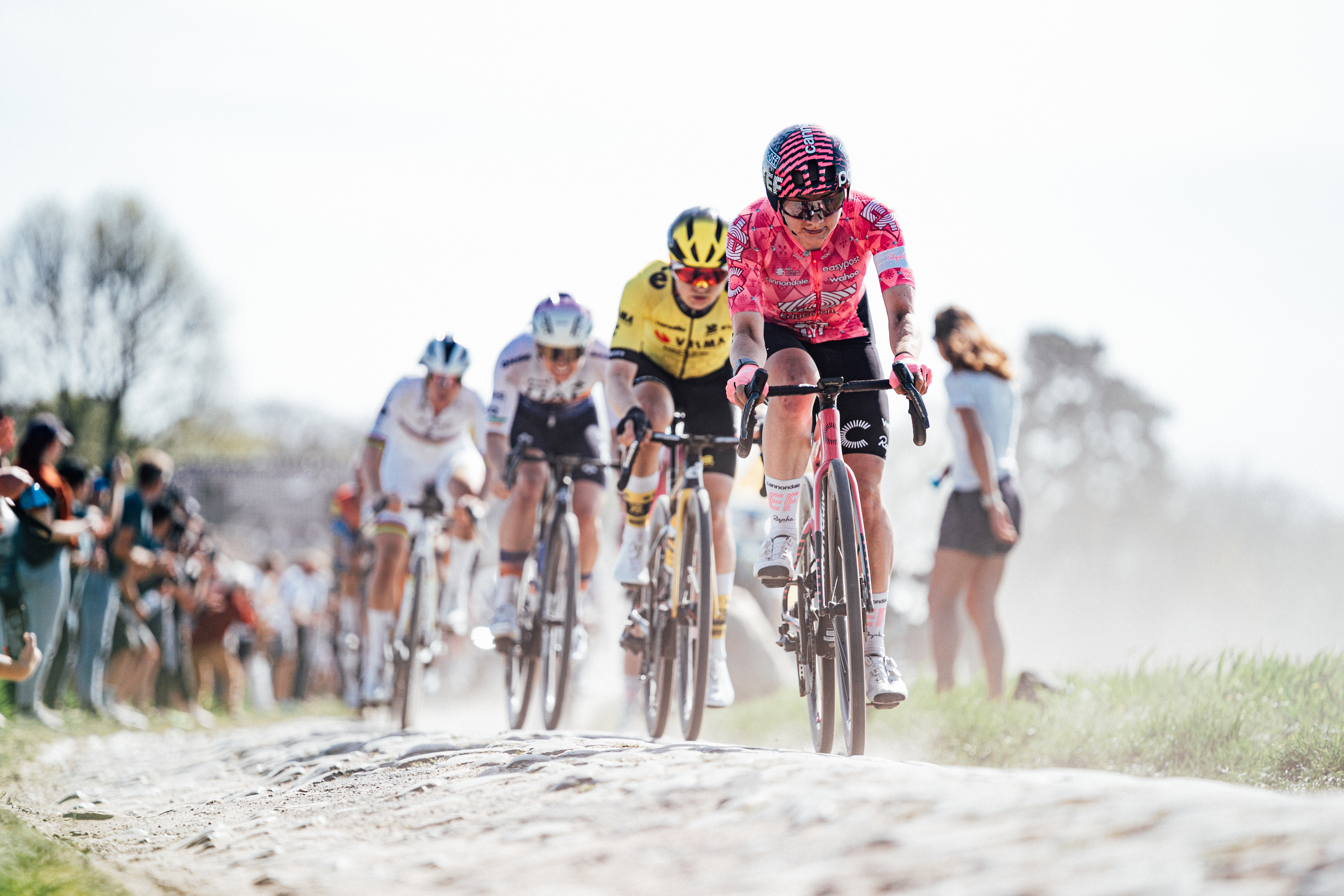Diets have to change for world to experience benefits of increased cycling, new research suggests
Due to current diets, increased food consumption would cause a rise in greenhouse gas emissions

While many are hailing the coronavirus pandemic for, at least momentarily, getting cars off the road and encouraging people to cycle more in the future, researchers have said that cyclists needing to eat more could also be bad for the environment.
A paper published in the international journal, Scientific Reports, says that more people switching from driving to walking or cycling will lead to an increase in food-production related emissions.
This takes away from the reduction in greenhouse gas emissions caused by so-called "passive" modes of transport, such as driving.
Therefore, lead researcher Dr. Anja Mizdrak from the University of Otago in New Zealand says people need to be encouraged to take low-carbon dietary options for the necessary extra calories, meaning less meat, dairy and processed food, and more food grown locally and seasonally.
>>> Meet the man cycling 100km a day for 100 days
"We have a conundrum - but a solvable one. To maximise the benefit on greenhouse gas emissions achieved by increasing active transport, we need to also address dietary patterns. Emissions associated with active transport will be lower if walking and cycling are powered by low-carbon dietary options," Mizdrak said.
The study, the first of its kind to estimate greenhouse gas emissions caused by food intake due to active transport, says the extra food consumption caused by travel would raise greenhouse gas emissions by 0.26 kilograms CO2-equivalents per kilometre for walking and 0.14 kilograms CO2-equivalents per kilometre for cycling, at least in economically developed countries.
Get The Leadout Newsletter
The latest race content, interviews, features, reviews and expert buying guides, direct to your inbox!
"To maximise the effect on greenhouse gas emissions achieved by increasing active transport, we need to address dietary patterns too. Emissions associated with active transport will be lower if walking and cycling are powered by low-carbon dietary options," Mizdrak says, urging people to shift away from meat consumption and towards more vegetables, whole grains and fruits.
"Given emissions associated with different food groups range widely - from 0.02 for vegetables to 5.6 grams CO2-equivalents per kilocalorie for beef and lamb in one global study, consumers switching to foods with lower emissions could reduce overall dietary emissions by up to 80 per cent," adds Dr Cristina Cleghorn.
Of course, health benefits would come around not just from the change in diet added to more people taking up walking and cycling, but more active transport would reduce air pollution and improve the quality of life in urban environments.
In the UK, Greater Manchester's Cycling and Walking Commissioner, the former Olympian Chris Boardman, says the Government's planned £2bn investment in cycling is unprecedented and will help solve short-term issues and will hopefully pave the way for longer-term problems to also be dealt with.
"More important than cash, the government has given cycling as a mode of transport a new status, not for ideological reasons but for practical ones, it’s the most logical solution to short-term problems and then, if we choose, it’ll help us tackle long-term ones," Boardman told Cycling Weekly.

Thank you for reading 20 articles this month* Join now for unlimited access
Enjoy your first month for just £1 / $1 / €1
*Read 5 free articles per month without a subscription

Join now for unlimited access
Try first month for just £1 / $1 / €1
Jonny was Cycling Weekly's Weekend Editor until 2022.
I like writing offbeat features and eating too much bread when working out on the road at bike races.
Before joining Cycling Weekly I worked at The Tab and I've also written for Vice, Time Out, and worked freelance for The Telegraph (I know, but I needed the money at the time so let me live).
I also worked for ITV Cycling between 2011-2018 on their Tour de France and Vuelta a España coverage. Sometimes I'd be helping the producers make the programme and other times I'd be getting the lunches. Just in case you were wondering - Phil Liggett and Paul Sherwen had the same ham sandwich every day, it was great.
-
 Aero bikes with gravel wheels?: Six tech insights from Paris-Roubaix Femmes
Aero bikes with gravel wheels?: Six tech insights from Paris-Roubaix FemmesEverything we found out about tyre widths, self-inflating systems, and wheel choices from the cobbled Monument
By Tom Davidson Published
-
 'This race is absolutely disgusting': Peloton reacts to another brutal Paris-Roubaix Femmes
'This race is absolutely disgusting': Peloton reacts to another brutal Paris-Roubaix FemmesNow in its fifth edition, Paris-Roubaix Femmes is still a tough race, even for the best bike riders in the world
By Adam Becket Published